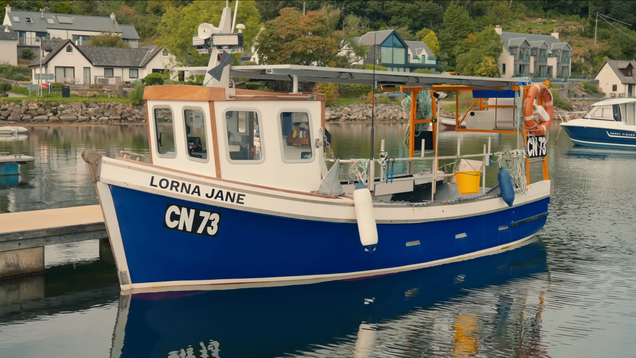The Shift Towards Sustainable Fishing: How Solar-Powered Vessels Are Changing the Industry
The fishing industry has long been associated with traditional practices that often rely on outdated technologies and unsustainable methods. However, a growing movement towards sustainability is reshaping the landscape, driven by innovative solutions like solar-powered vessels. This article explores the implications of this shift, addressing key concerns and questions surrounding the transition to greener fishing practices.
Understanding the Challenges of Traditional Fishing Methods
For many fishermen, the daily grind involves facing harsh weather conditions, navigating unpredictable waters, and managing the costs associated with operating older diesel engines. These vessels, often decades old, not only contribute to environmental degradation through emissions but also impose significant financial burdens on their operators. A recent study highlighted that diesel fuel costs can consume up to 30% of a fishing vessel’s operating budget, leaving little room for profit. This economic strain has prompted some fishermen to seek alternatives that are both cost-effective and environmentally friendly.
The Case for Solar-Powered Fishing Vessels
One notable example of innovation in the fishing industry comes from a Scottish lobster fisherman who decided to transition to a solar-powered vessel. Faced with escalating diesel costs, he sought a solution that would not only reduce his expenses but also lessen his environmental impact. Solar-powered boats harness renewable energy, significantly cutting down on fuel consumption and emissions. According to a report from the International Maritime Organization, transitioning to renewable energy sources could reduce greenhouse gas emissions from the fishing sector by up to 50% by 2030.
The Benefits of Going Green: Economic and Environmental Impact
The advantages of adopting solar technology extend beyond mere cost savings. By utilizing solar energy, fishermen can operate more sustainably, contributing to the preservation of marine ecosystems. This shift aligns with global efforts to combat climate change and protect biodiversity. Additionally, as consumers increasingly demand sustainably sourced seafood, fishermen who adopt green technologies may find themselves with a competitive edge in the market.
Real-World Examples of Successful Transitions
Several case studies illustrate the potential of solar-powered fishing vessels. In Norway, a fleet of solar-powered fishing boats has been successfully deployed, showcasing the feasibility of this technology in harsh marine environments. These vessels not only reduce operational costs but also attract environmentally conscious consumers, leading to increased sales and market share. Similarly, in Australia, a pilot program introduced solar-powered fishing boats to local fisheries, resulting in a 40% reduction in fuel costs and a significant decrease in carbon emissions.
Addressing Concerns: The Feasibility of Solar Technology
While the benefits of solar-powered vessels are clear, some fishermen may still have concerns about the practicality of this technology. Questions about the initial investment, maintenance, and reliability of solar systems are common. However, advancements in solar technology have made these systems more efficient and affordable. Many manufacturers now offer financing options and warranties, making it easier for fishermen to transition without incurring overwhelming costs. Moreover, the long-term savings on fuel can offset the initial investment, making solar vessels a financially viable option.
The Future of Fishing: A Sustainable Path Forward
As the fishing industry grapples with the dual challenges of rising operational costs and environmental responsibility, the adoption of solar-powered vessels represents a promising solution. By embracing innovative technologies, fishermen can reduce their carbon footprint while enhancing their profitability. The shift towards sustainability is not merely a trend; it is a necessary evolution for the industry, ensuring that fishing remains viable for future generations.
In conclusion, the transition to solar-powered fishing vessels is not just about reducing costs; it is about redefining the future of fishing. As more fishermen recognize the benefits of sustainable practices, the industry stands to gain not only economically but also environmentally, paving the way for a healthier ocean and a more sustainable food source.

